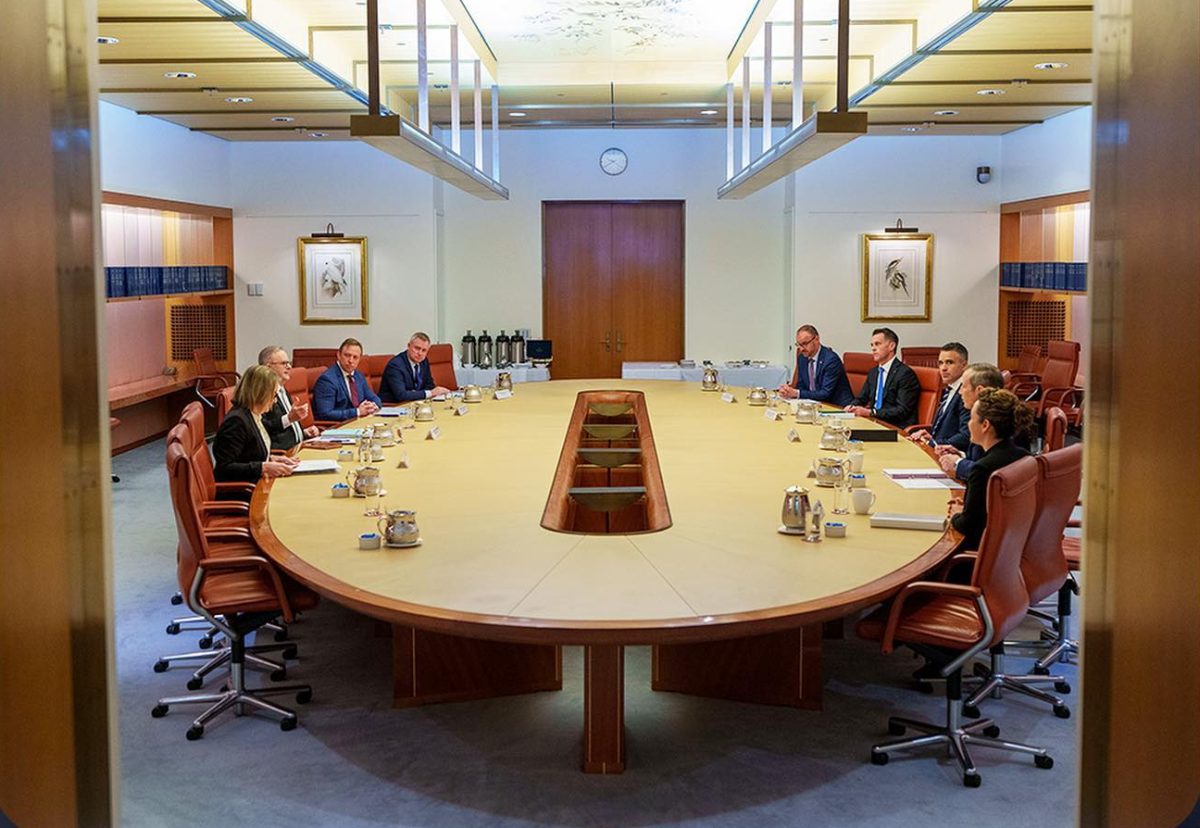
Domestic violence was the focus of the National Cabinet’s meeting in Canberra today. Photo: Anthony Albanese Instagram.
National Cabinet has committed $4.7 billion towards tackling domestic violence and helping victims.
The Federal Government will invest a total of $3.9 billion in support for frontline legal assistance services to be delivered through a new partnership agreement with the states and territories.
Almost $800 million will go towards a new National Access to Justice Partnership over five years from July 2025 on the expiry of the current National Legal Assistance Partnership, which had not been allocated further money.
Its focus will be on uplifting legal services responding to gender-based violence.
The new agreement will support greater flexibility for states and territories to direct funding to meet local needs and will be accompanied by stronger transparency and accountability mechanisms.
It will include a focus on nationally coordinated approaches to support prevention activities through frontline services, including funding for specialist services for women; services to support children exposed to family, domestic and sexual violence to heal and recover; and working with men, including men’s behaviour change programs for perpetrators of gendered violence.
The total package is the largest injection of funding to the legal assistance sector in 20 years, providing greater certainty for hundreds of services across the country, including for providers of holistic support for victims and survivors of gender-based violence.
Anthony Albanese met with his state and territory counterparts in Canberra on Friday (6 September), with family violence the focus of their discussions.
“We know that ending gender-based violence is a priority for the Commonwealth and for every single jurisdiction,” the Prime Minister said.
“There are too many stories. Tragically, almost no week goes past without there being a tragedy, which is something that then flows onto intergenerational issues as well.
“We know this is an issue not just for the government to solve but for the whole of society as well. We need to change culture, we need to change behaviour, but we have a responsibility to act.”
The first ministers agreed that ending the national crisis of gender-based violence, including violence against children and young people, will remain an ongoing priority for National Cabinet, and they acknowledged that a coordinated approach across all states and territories is required to address this national crisis.
The funding aims to deliver support for frontline specialists and legal services responding to gender-based violence and innovative approaches to better identify and respond to high-risk perpetrators to stop violence from escalating.
It will also address the role that “systems and harmful industries” play in exacerbating violence.
An immediate audit of key Commonwealth government systems will be implemented to identify areas where they are being weaponised by perpetrators of family and domestic violence.
Harmful industries were identified as the gambling and alcohol sectors.
But the Federal Government is still “working through” its position over gambling advertising.
States and territories agreed to review their existing alcohol laws.
“On so many occasions when one of these tragedies occurs, the perpetrator will be someone who has experienced it in their own family situation when they were younger,” Mr Albanese said.
“How do we intervene to change that? How do we intervene to change the culture so that it is unacceptable?”
National Cabinet also committed to keep a “central focus” on missing and murdered First Nations women and children.
Leaders agreed that all government commitments on gender-based violence must explicitly consider the needs and experiences of First Nations people, and be delivered in genuine partnership with First Nations communities.
The first ministers also agreed to develop new national best practice family and domestic violence risk assessment principles.
They will support enhancements to the National Criminal Intelligence System, which enables information sharing across jurisdictions, to provide a ‘warning flag’ that will assist police when responding to high-risk perpetrators.
Nationally consistent, two-way information sharing between the family law courts and state and territory courts, child protection, policing and firearms agencies will be extended and increased.
New focussed deterrence models and domestic violence threat assessment centres will be trialled. These centres will be able to use intelligence, monitor individuals and intervene with those at high risk of carrying out homicide.




















